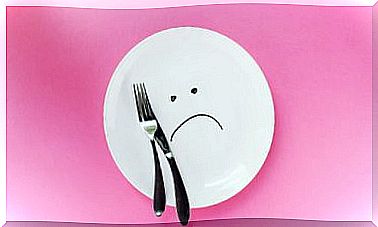What Is Emotional Stress And Why Does It Happen?
Emotional stress is a human response to certain situations that, generally, involve challenge or threat. In principle, it is an adaptive reaction that allows the establishment of actions according to the context. However, its chronicity can negatively affect physical and mental health.
The perception of stressful situations will depend on the particularities of each person and the characteristics of the environment that surrounds them. Consequently, the causes that cause it can vary.
What is emotional stress?
Stress is a physiological and psychic response that is activated by perceiving a challenging, threatening situation or with potential negative consequences. This reaction allows the human being to adapt to the demands of the surrounding world.
However, if this response is prolonged over time, it can generate an overload on the body and compromise health. The most common conditions that result from stress are heart problems, changes in blood pressure, anxiety and depression.
Here it is worth making a clarification, since stress, anxiety and depression are not the same. Although they are often confused and it is thought that they respond to the same origin, it is very likely that the first gives way to the other two.
This emotional stress reaction is often accompanied by emotions such as fear, anger, and sadness. However, it is important to keep in mind that the response not only involves negative emotions, but it is also possible to experience joy during the course of them.
An example of this can be the achievement of the dream job, which requires great personal demand (either time, physical or mental effort). In these cases, the stressors are perceived as an opportunity or a challenge and it is common to experience happiness at having found a possible profit.
We must remember that we are facing an adaptive response, the purpose of which is to optimize people so that they meet the demands of life. This means that it will not always be a hindrance. It is the idea behind the concept of positive stress or stress .

An explanatory model of emotional stress
Over time, scientific research has provided different theoretical models to explain stress. Among them, psychobiological and functional theories stand out. The most relevant is the one that raises a transactional perspective between the person and their environment.
Transactional model
According to this model, emotional stress is the result of the interaction between the individual and the context. That is, the person is not reduced to a mere recipient of stimuli, but their previous experiences, belief systems and personality also contribute to the production of responses.
In this way, three fundamental aspects are proposed that are part of the process:
- The subject’s perception of stressors.
- The emotions that such assessment arouses.
- Cognitive and behavioral responses aimed at coping with these stressors.
The authors of this model attach great importance to the interaction between the individual and the environment. Well, both the characteristics of the external situation and the psychic constitution of the person, will largely determine perception.
The assessment of a stressful situation includes potential dangers, challenges, or threats. And the answer that will be had before them will depend on the capacities of the person to face them.
Causes of emotional stress
Taking into account the transactional model, it can be stated that stressors are not the same for all people. Individual characteristics play an important role in the perception of stressful situations.
Therefore, what is stressful for one, does not necessarily have to be for another. Although there are a series of circumstances that tend to generate this type of response in most individuals, among which the following stand out:
- Economic, family or work problems.
- Academic or professional demands.
- Interpersonal conflicts or breakdown of relationships.
- Suffering from a chronic illness.
- Death of a loved one.
- Experience of catastrophes.
- Starting a new job, starting studies in a new school or moving house.

A necessary answer
In short, emotional stress is a response that activates physiological and psychic mechanisms to guarantee the adaptation of the human being in certain situations. And, usually, it is accompanied by an emotion.
This reaction should not, by itself, be viewed as positive or negative. The problem appears when the response becomes chronic, as it can trigger physical and mental illnesses.
To avoid its chronicity or to optimally cope with daily demands, the first step is to carry out activities that strengthen the person physically and psychologically. In this way, you can face and resist the inevitable events of life.









